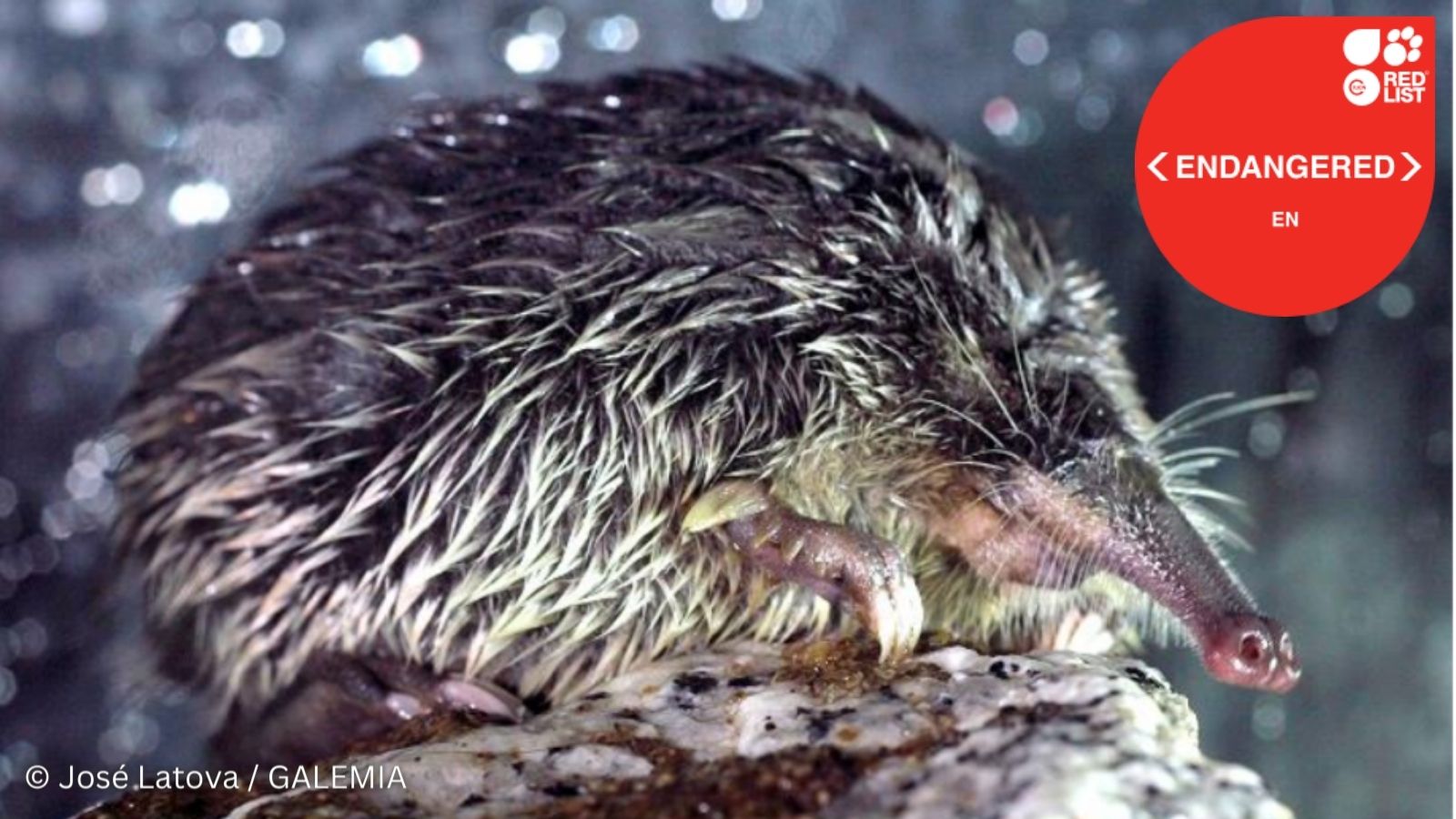Recovery of the Iberian lynx: A conservation success in Spain

Iberian lynx (Lynx pardinus) improves its IUCN Red List status.
In a combined effort to protect Mediterranean biodiversity, the recovery of the Iberian lynx (Lynx pardinus) stands out as a major conservation achievement. At the regional level, the IUCN Centre for Mediterranean Cooperation already warned in 2009 about the need for action in its publication “The status and distribution of Mediterranean mammals”. The species, which was near extinction, has shown a remarkable recovery thanks to conservation programmes and collaboration between various entities.
The recent update of the IUCN Red List of Threatened Species™ reveals that the Iberian lynx has gone from "Endangered" to "Vulnerable" as a result of conservation efforts. The population has significantly increased thanks to reintroduction and captive breeding projects, with the population increasing from 62 mature individuals in 2001 to 648 in 2022. Today, the total population, including young and mature ones, is estimated to exceed 2000 individuals.
Nature-based Solutions (NbS) as conservation strategies have been significant for the recovery of the lynx. The establishment of ecological corridors and the preservation of their natural habitat not only helps the lynx, but also benefits other species, such as their prey, and local ecosystems. Key to this success has been the active restoration of Mediterranean scrub and forest habitats, as well as the full protection of the European rabbit (Oryctolagus cuniculus), the main source of food for the lynx. Translocations and an ex-situ breeding programme have encouraged genetic diversity, increasing the species' resilience to threats such as disease and poaching. This achievement would not have been possible without the collaboration between various entities, from government agencies and scientists, to NGOs, private companies and local communities, sharing their expertise and resources.
 Photo: CoDe83 / iNaturalist CC BY-NC
Photo: CoDe83 / iNaturalist CC BY-NC
Despite the decrease in extinction risk, Iberian lynx populations remain in a vulnerable condition. In its first Green Status assessment of the species, Iberian lynx populations are listed as "Largely depleted". The Species Recovery Score, which assesses the impact of past, present and future conservation actions to measure their conservation success and the actual or potential recovery of the taxon, is 22%1 (Largely depleted).
However, the positive trend in the species' numbers reflects the impact of conservation efforts to date. Actions such as area protection, reintroductions, poaching prevention, roadkill mitigation and genetic management have reversed population losses and prevented a probable extinction. According to this assessment, enough suitable habitat remains for the species to reach full recovery status 100 years from now if conservation efforts continue with maximum effectiveness.
The species continues to face several critical challenges:
-
Fluctuation in European rabbit populations, due to disease and changes in land use.
-
Habitat fragmentation, which has reduced their territory, making it difficult for them to find mates and establish new territories.
-
Low genetic diversity which increases their vulnerability to disease and reduces their resilience.
-
Mortality as a result of poaching, poisoning and collisions with vehicles, which particularly affect small and fragmented populations.
-
Diseases, both natural and transmitted by domestic animals, impact their health and long-term survival.
1 The reason behind this is that the Iberian Lynx is "absent" in two of its six spatial units, and "present" but "non-functional" in the remaining four. Extinct in the Wild Species (absent in all spatial units) would have a Green Score of 0%, and a species that is not threatened with extinction and is fully functional in all spatial units would have a Green Score of 100%.
 Photo: Lynx Pardinus © Mikelane45 | Dreamstime.com
Photo: Lynx Pardinus © Mikelane45 | Dreamstime.com
A symbol of hope
The Iberian lynx has become a symbol of Spanish biodiversity and an example of how cooperation and commitment can reverse the course of endangered species. The recovery of the Iberian lynx is not only a conservation milestone, but also an inspiration for future efforts to protect Spain's natural heritage.
"This success, the largest recovery of a feline species achieved through conservation, is the result of a committed collaboration between public agencies, scientific institutions, NGOs, private companies and community members, including local landowners, farmers, rangers and hunters, with the financial and logistical support of the European Union's LIFE Project," said Francisco Javier Salcedo Ortiz, LIFE Lynx-Connect Project Coordinator, who led the Iberian Lynx conservation actions. "There is still much to be done to ensure that Iberian lynx populations survive and that the species recovers throughout its indigenous range. Looking ahead, we plan to reintroduce the Iberian lynx to new sites in central and northern Spain."
Useful links:
Frequently Asked Questions on the IUCN Red List


